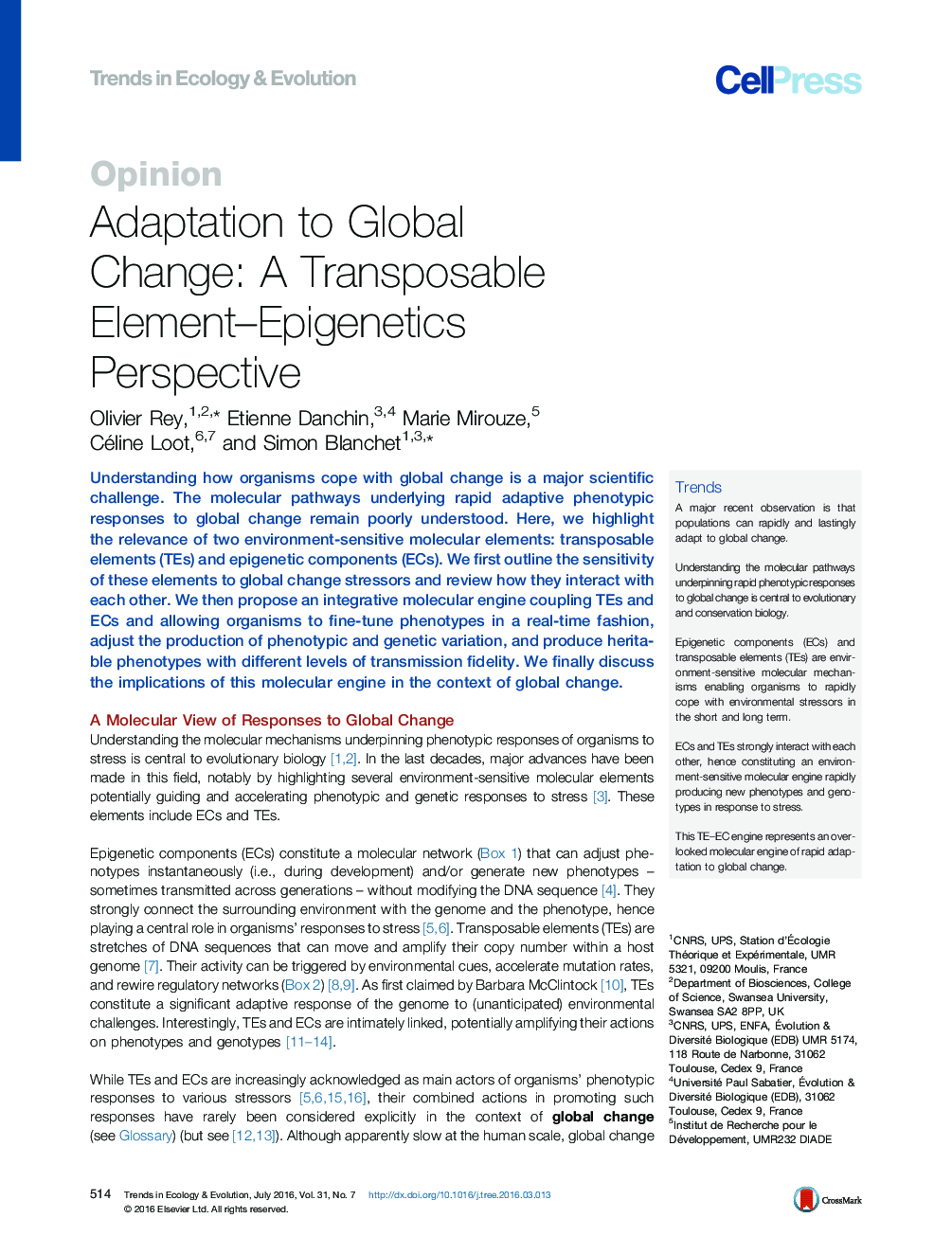| Article ID | Journal | Published Year | Pages | File Type |
|---|---|---|---|---|
| 142292 | Trends in Ecology & Evolution | 2016 | 13 Pages |
Understanding how organisms cope with global change is a major scientific challenge. The molecular pathways underlying rapid adaptive phenotypic responses to global change remain poorly understood. Here, we highlight the relevance of two environment-sensitive molecular elements: transposable elements (TEs) and epigenetic components (ECs). We first outline the sensitivity of these elements to global change stressors and review how they interact with each other. We then propose an integrative molecular engine coupling TEs and ECs and allowing organisms to fine-tune phenotypes in a real-time fashion, adjust the production of phenotypic and genetic variation, and produce heritable phenotypes with different levels of transmission fidelity. We finally discuss the implications of this molecular engine in the context of global change.
TrendsA major recent observation is that populations can rapidly and lastingly adapt to global change.Understanding the molecular pathways underpinning rapid phenotypic responses to global change is central to evolutionary and conservation biology.Epigenetic components (ECs) and transposable elements (TEs) are environment-sensitive molecular mechanisms enabling organisms to rapidly cope with environmental stressors in the short and long term.ECs and TEs strongly interact with each other, hence constituting an environment-sensitive molecular engine rapidly producing new phenotypes and genotypes in response to stress.This TE–EC engine represents an overlooked molecular engine of rapid adaptation to global change.
